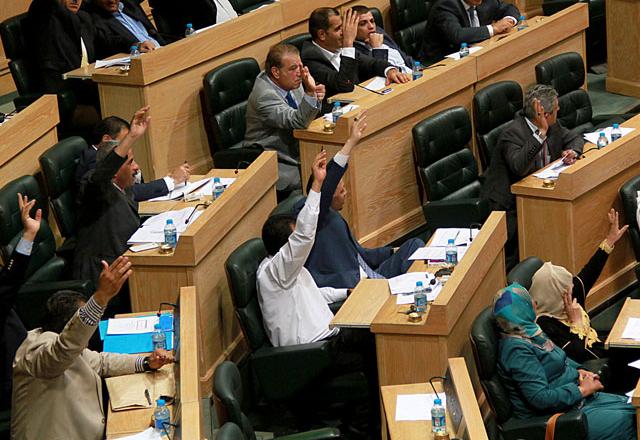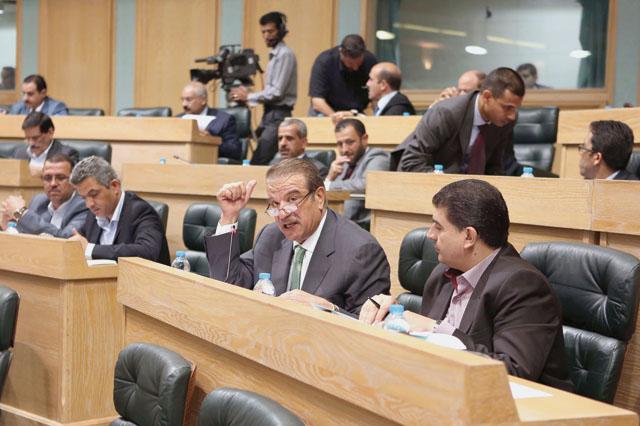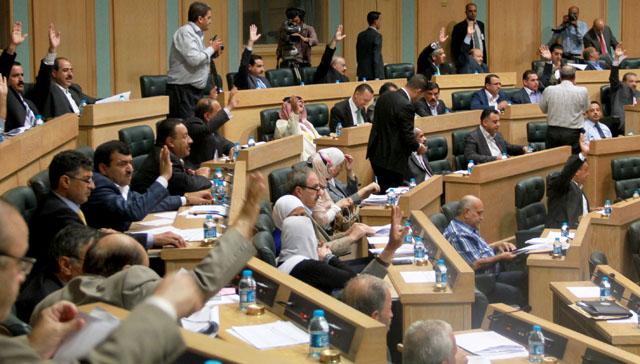You are here
Deputies add four elected members to judicial council
By Khaled Neimat - Aug 31,2014 - Last updated at Aug 31,2014

AMMAN — The Lower House on Sunday endorsed a provision in the draft independence of the judiciary law allowing for the election of four additional members to the Higher Judicial Council, setting a precedent in the country's judicial system.
The decision came at a Lower House session, during which MPs deliberated the bill amid demands to further advance the independence of the judicial authority.
The new method ends decades of appointing leading judges to these high ranking judicial positions by Royal Decree upon a government recommendation.
The new mechanism would entail adding four seats to the council whose members are elected from among the judges.
Other members of the judicial council will remain unchanged and are appointed based on their positions or seniority.
Some veteran MPs opposed the move, describing it a formula to destroy the autonomy of the judicial authority.
"We cannot adopt such an alternative in the selection process of the higher judicial authority in the country as it embroils the judiciary in politics once elected members are introduced," said Deputy Abdul Munim Odat (Irbid, 1st District), who heads the House's Legal Committee.
Former House speaker Abdul Karim Dughmi (Mafraq, 1st District), a legal expert, agreed with Odat.
"I know a lot about this and I have been teaching this subject for quite a long time. I am against this method in selecting the members of the Higher Judicial Council," Dughmi told MPs.
His remarks were made in response to Deputy Hind Fayez's (Central Badia) criticism of those against the election of some council members, while they themselves were elected as MPs.
Deputy Saad Hayel Srour (Northern Badia), also a former speaker, supported the decision but called for limiting its range to elect only three to four members of the council.
At the end of the two-hour discussion, a majority of the MPs voted in favour of electing four of the council members.
The Constitution guarantees independence of the judicial authority, as it clearly states that judges are "subject to no authority but that of the law".
But MPs endorsed Article 3 of the draft independence of the judiciary law to reaffirm the need to ensure that no individual or organisation intervene in the affairs of the judicial authority.
Meanwhile, deputies rejected a proposal to change the name of the bill to "Judges' Independence Law".
Related Articles
MPs on Wednesday decided to scrap the secretariat general of the Higher Judicial Council.
Some MPs on Sunday called for new constitutional amendments to grant His Majesty King Abdullah exclusive authority to appoint the head of the Higher Judicial Council.
The Lower House on Tuesday decided to amend a provision in the draft independence of the judiciary law easing conditions for the appointment of the Court of Cassation president.


















